
Jan. 27, 2010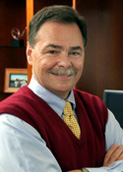 Fred Sanfilippo, MD, PhD |
|||
Protecting the health of Georgia's children Children's invests $75M in research Sharing burdens of life and death
|
|||
Within hours of the earthquake that devastated Haiti last week, people, governments, and organizations from across the globe were mobilizing a coordinated relief effort. (Read about WHSC's contributions to this effort and ways you can help.) Working together, these groups will achieve far greater good for the victims of this tragedy than any one of them would have had the power to do alone. This is the case in many aspects of life, and it's especially true of our work here in the Woodruff Health Sciences Center (WHSC).
A case in point you may have read about recently is WHSC's expanding relationship with long-time collaborating partner Children's Healthcare of Atlanta. (Read story below about Children's recent investment of $75 million in pediatric research centers of excellence.) For the past decade, WHSC and Children's have built a partnership that has protected and restored the health of Georgia's children. Now we are poised to take that partnership to even greater heights of achievement by collaborating to develop one of the top pediatric centers in the nation.
This relationship is important not only to each of the partners but also to the ultimate bottom line—the health of children here in Atlanta, across the region, and indeed around the world. Our boards and our faculty have shown extraordinary vision and commitment by acting on the knowledge that investments in education and research lead to improved clinical care—and therefore to better health for all kids.
Both Emory and Children's have achieved impressive momentum over the past 10 years. Working together over the next 10, we have the potential to accelerate that momentum and make significant progress toward both our shared and individual vision and goals.
In fact, progress is already under way that will allow us to enhance our understanding of childhood diseases, to prepare the best pediatric professionals, and to provide outstanding care to Georgia's children. Together, we're poised to make a lasting and tangible difference for the kids we serve. That's what ultimately makes the relationship between Emory and Children's so unique and rewarding, and it's why we're so committed to making it even stronger—to transform health and healing … together.
Please share your thoughts and feedback at evphafeedback@emory.edu.
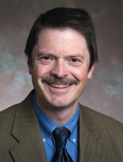 Paul Spearman is chief research officer for Children's and vice chair of pediatric research at Emory.
Paul Spearman is chief research officer for Children's and vice chair of pediatric research at Emory.Children's invests $75 million in research centers
The research partnership between the WHSC and Children's Healthcare of Atlanta gained strength this month when Children’s announced it will invest $75 million in eight research centers of excellence over the next five years. The funding is part of the new research focus for Children's and its academic partners first announced in 2008.
Last November, Children's received $30 million from the Joseph B. Whitehead Foundation, including $25 million to help fund a new pediatric research building on the Emory campus.
The eight research centers will build on existing strengths of physicians and research faculty at Children's, Emory, Georgia Tech, and Morehouse School of Medicine. Emory faculty will hold key leadership positions in the centers, which include the Aflac Cancer Center and Blood Disorders Service of Children's and seven new priority areas: immunology and vaccines, transplant immunology and immune therapeutics, technology innovation, cystic fibrosis, developmental lung biology, endothelial cell biology, and cardiovascular biology. Read more.
Research funding of $1.4M is available for pilot projects through the new centers. See website for preliminary information on each of the centers and center-specific RFAs for the pilot projects. The due date for applications is Feb. 1, and the funding period is March 1, 2010 to Dec. 31, 2010.
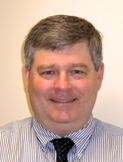 Lee Partridge
Lee PartridgeOn average, 30 pharma reps visit Emory Healthcare (EHC) facilities each day. Reps who make an unscheduled appearance can take precious time away from the many responsibilities of clinicians and staff.
To keep track of pharma reps who are in Emory facilities, EHC is using a system called Status Blue, developed and operated by a Marietta company of the same name. The system requires reps who wish to see an EHC employee to register on status-blue.com. The system frees up individual departments and areas, which were responsible previously for badging their visitors.
On the Status Blue website, reps will find requirements put into place by EHC that they need to fulfill to be credentialed, such as a criminal background check, HIPAA training, and flu vaccination. Status Blue verifies that a pharma rep applying to be credentialed at EHC has met the requirements, thus relieving Emory of that responsibility and cost. Reps pay an annual fee of $80 to Status Blue to be credentialed, and the fee covers any health care system across the country that contracts with Status Blue.
Credentialed reps who have an appointment at Emory check in at a kiosk or computer station on-site. The computer printer spits out a label badge with the rep's name, the name of the person the rep is visiting, and the time and location of the appointment. (Anyone who is not credentialed would be unable to print out a badge.) Meanwhile, EHC employees in materials management also can access Status Blue's website to see who is on-site at any given time.
"Status Blue works only if employees are on the lookout for the badges," says Lee Partridge, who directs materials management for EHC. EHC has instituted a "three strikes and you're out" policy for any rep found inside a facility without a badge or visiting areas other than the one for which he/she has an appointment. Such infractions have been rare though, Partridge says.
While a few reps expressed reluctance at first about Emory's system, EHC chose Status Blue because it offered one of the least expensive fees to reps, he says. Some vendor registration companies charge reps more than $200 per facility.
"Vendors are our customers too," Partridge says. "Yes, we may buy a product from them, but if they or their family member gets sick, we hope that they will come to Emory."
The system has worked well since it was instituted eight months ago, and in the future, EHC would like to expand it to include other vendors, such as those for landscaping or office supplies, Partridge says. Different credentialing criteria would be listed for such vendors.
The system is also under consideration by the medical school for any visiting pharma reps. The school's updated conflict of interest policy already has been incorporated into EHC's credentialing requirements for reps.
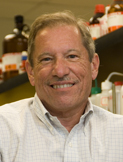 Dennis Liotta
Dennis Liotta
Emory partners with GSK on drug discovery for neglected tropical diseases
Emory University has signed a memorandum of understanding (MOU) with GlaxoSmithKline as the first university to join GSK's new "intellectual property pool" aimed at developing new drugs for neglected tropical diseases in least developed countries.
Through the Emory Institute for Drug Discovery (EIDD), established in May 2009 and led by chemistry professor Dennis Liotta, Emory scientists will have access to hundreds of patents and patent applications, to scientific reports and analysis, and to GSK scientists who can provide detailed information about selected compounds.
The 16 neglected diseases include tuberculosis, malaria, blinding trachoma, buruli ulcer, cholera, dengue/dengue haemorrhagic fever, racunculiasis, fascioliasis, human African trypanosomiasis, leishmaniasis, leprosy, lymphatic filariasis, onchocerciasis, schistosomiasis, soil transmitted helminthiasis, and yaws.
The patents in the intellectual property pool are not generally filed in the least developed countries. Scientists will sort through the wealth of intellectual property and research data provided by GSK to select the most promising compounds that could lead to effective new medicines. Once the EIDD identifies technologies or selected compounds it wishes to pursue further, Emory and GSK will develop a license agreement and additional collaborative research aimed at advancing the development of new medicines.
An independent group, BIO Ventures for Global Health, will administer GSK's intellectual property pool. GSK also will collaborate with Alnylam Pharmaceuticals and with the South African company iThemba Pharmaceuticals, founded in 2003 by Liotta and research partners in England, the United States, and South Africa. Read more.
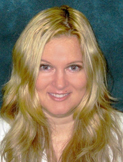 Wendy Wyche
Wendy Wyche
Bio stats:
• Associate Director of Pastoral Care, Emory Univ. Hospital
• Chair, Emory Transplant Center Patient and Family Advisory Council
• Pastoral care residency, EUH Midtown and EUH
• Palliative care training, Education in Palliative and End-of-Life Care, Chicago
• Pastoral care internship, Dana Farber Cancer Institute
• MDiv, Harvard Divinity School
• BA, Southern Methodist University
Contact:
wendy.wyche@emory
healthcare.org
Sharing burdens of life and death
One in a series of profiles of people in the Woodruff Health Sciences Center
Last March, newly ordained minister Wendy Wyche found herself officiating at her first wedding—on the transplant floor of Emory University Hospital (EUH). The groom was a patient who was waiting for a heart.
An ordained Christian minister, Wyche serves the Emory Transplant Center as interfaith chaplain. "I see people from all religions and backgrounds," she says. "Whether we identify ourselves as religious, atheist, or agnostic, everyone has a spiritual framework—values and beliefs that give life meaning. I try to meet people where they are."
Wyche is part of four interdisciplinary teams in transplant, including kidney/pancreas, liver, lung, and heart. Her job goes far beyond just stopping by to pray. She attends morning huddles and rounds with transplant clinicians. She meets with people one on one and runs support groups. She participates in the selection committee for who becomes eligible for transplant and serves on the ethics committee. She teaches pastoral care modules at Emory's Candler School of Theology. And she is working with transplant administrator Cynthia Devroy and surgeon Nicole Turgeon to provide opportunities for medical students to hear transplant patients and families talk about transplant from their own perspective.
Transplant patients and families have more than their fair share of anxiety and fear, both before and after the procedure, she says. "There's a lot of joy and healing in transplant, but there's also a lot of waiting." After their wait is over, patients require expensive medications to avoid organ rejection, and they struggle to hang onto jobs. "Patients need to talk about their fear and suffering and about concrete ways of making the most out of life."
Wyche encourages patients to connect with their communities and to create their own communities, which inevitably include members of Emory's transplant team. "We follow these patients for years, and we're all very close. It's tough when we lose someone because they're a part of our family," Wyche says.
She is available to counsel not only patients but also transplant team members, whose work is intense and highly stressful. She offers debriefings after critical incidents and makes herself available to staff on both individual and group levels. "We have to take good care of ourselves so we can take care of others," she says.
That goes for herself too. She could get overwhelmed with the large population she serves and the extent of their need. At the end of the day, Wyche has to trust that she has done what was needed for the day—or night. "I love what I do," she says. "The teamwork is incredible. I wouldn't do anything else."
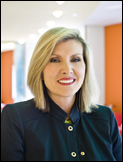 Donna Hyland
Donna Hyland
• Hyland discusses managing through change
Donna Hyland, president and CEO of Children's Healthcare of Atlanta, recently spoke to an executive women's alumni group at Goizueta Business School on managing change and challenges in health care. Hyland, who has been at Children's for more than 20 years and assumed her current role in early 2008, discussed major recent changes at Children's, including the organization's assumption of operations of Hughes Spalding Hospital and acquisition of the Marcus Autism Center. Read more.
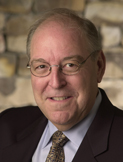 Stuart Zola
Stuart Zola
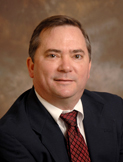 Larry Young
Larry Young
• Two at Yerkes selected by AAAS
Stuart Zola, director of Yerkes, and Larry Young, Yerkes researcher, have been selected as fellows in the American Association for the Advancement of Science (AAAS).
Zola was selected for contributions in neuroscience, including delineation of the brain's memory system. He was instrumental in developing a model of human amnesia in nonhuman primates to identify brain structures critical to memory function. His research has contributed insights into memory loss in humans resulting from head trauma and from progressive diseases, such as Alzheimer's, as well as less-severe memory problems that often accompany depression, chronic stress, and normal aging. Currently, he is studying patients with mild cognitive impairment as a way to identify those who later may be affected by Alzheimer's.
Young, who chairs Yerkes' behavioral neuroscience division, was selected for contributions to neurogenetics, including elucidating molecules and mechanisms that mediate social behaviors in mammals. Young's research focuses on understanding the relationship between genes, the brain, and behavior to gain insight into human disorders such as autism. He recently published information on successfully generating the first transgenic prairie voles, an important step toward understanding genetics of pair bonding and enabling scientists to perform genetic manipulations that will help identify the brain mechanisms of social bonding and other complex social behaviors.
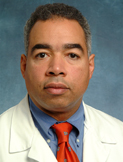 Arthur Yancey
Arthur Yancey
• Yancey heads Grady EMS
Arthur Yancey was recently appointed medical director of Grady Emergency Medical Services (EMS). Yancey has served in emergency medicine's section of prehospital and disaster medicine for more than a decade and has extensive expertise in emergency medical dispatch, alternate strategies for non-emergent 911 calls, EMS readiness for pandemic flu, and communicable disease preparedness. Read more.
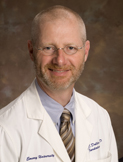
Allen Dollar
• Dollar appointed chief of cardiology at Grady
Cardiologist Allen Dollar has been named to lead cardiology at Grady Hospital, assuming a role long held by cardiologist Nanette Wenger. Dollar joined Emory's faculty in 2005 after 13 years in private practice at Piedmont. Dollar helps supervise medical students who coordinate a weekly medical clinic for Atlanta's homeless and travels annually to developing countries to provide short-term medical care. Read more.
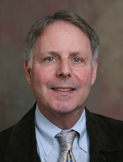
Michael Cohen
• Cohen directs breast imaging
Radiologist Michael Cohen has been appointed director of breast imaging, replacing Carl D'Orsi, who is moving into a new position as director of breast imaging research. Cohen joined Emory from the University of Virginia. He currently chairs the Radiological Society of North America Radiographics Panel on Breast Imaging, is a fellow of the American College of Radiology, and has served on the Communications Committee of the American Society of Breast Disease. Read more.
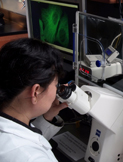
• Connect with potential partners in industry
A half-day meeting on "Academic and Industry Intersection: Accessing Partners" will be held at the Emory Conference Center on Wed., Feb. 3, from 11:30 to 5:45, with a networking reception following the program. The event is co-hosted by the Atlanta Clinical and Translational Science Institute and Georgia Bio, and program organizers include the NIH's National Center for Research Resources, FDA, and Georgia Research Alliance. For details about the program or to register, see website. Emory neuroscientist Dennis Choi is keynote speaker.
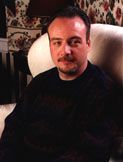 Matthew Scott
Matthew Scott
• Grand rounds features first hand transplant recipient
Matthew Scott, the nation's first hand transplant recipient, will present a patient's perspective on the procedure at Surgery Grand Rounds on Feb. 18, 7:00 a.m. to 8:00 a.m., at Emory University Hospital auditorium. Emory transplant surgeon Linda Cendales, who helped organize the team at University of Louisville who performed Scott's transplant in 1999, will discuss clinical and research aspects of the procedure.
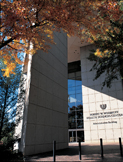
• Save the date for State of the WHSC address
Please mark your calendar for the State of the Woodruff Health Sciences Center address on Mon., Feb. 22, at 4:30 p.m. in the WHSCAB auditorium.
